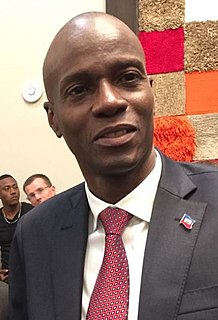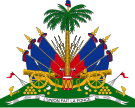
The recorded written history of Haiti began on 5 December 1492 when the European navigator Christopher Columbus happened upon a large island in the region of the western Atlantic Ocean that later came to be known as the Caribbean. It was inhabited by the Taíno, and Arawakan people, who variously called their island Ayiti, Bohio, or Kiskeya(Quisqueya). Columbus promptly claimed the island for the Spanish Crown, naming it La Isla Española, later Latinized to Hispaniola. French influence began in 1625, and French control of what was called Saint-Domingue—modern-day Haiti—began in 1660. From 1697 on, the western part of the island was French and the eastern part was Spanish. Haiti became one of the wealthiest of France's colonies, producing vast quantities of sugar and coffee and depended on a brutal slave system for the necessary labor. Inspired by the message of the French Revolution, Haitian slaves rose up in revolt in 1791 and after decades of struggle the independent republic of Haiti was officially proclaimed in 1804.

The government of Haiti is a semi-presidential republic, a multiparty system wherein the President of Haiti is head of state elected directly by popular elections. The Prime Minister acts as head of government and is appointed by the President, chosen from the majority party in the National Assembly. Executive power is exercised by the President and Prime Minister who together constitute the government. Legislative power is vested in both the government and the two chambers of the National Assembly of Haiti. The government is organized unitarily, thus the central government delegates powers to the departments without a constitutional need for consent. The current structure of Haiti's political system was set forth in the Constitution of March 29, 1987.

Fanmi Lavalas, is a social-democratic political party in Haiti. Its leader is former Haitian President Jean-Bertrand Aristide. It has been a powerful force in Haitian politics since 1991. Fanmi Lavalas governments advocate a policy of "growth with equity" based on Caribbean and Western European social democratic principles. Fanmi Lavalas governments have emphasised investment in education and health care as their priorities and have refused International Monetary Fund austerity measures.

René Garcia Préval was a Haitian politician and agronomist who twice served as President of Haiti, from February 7, 1996, to February 7, 2001, and again from May 14, 2006, to May 14, 2011. He was also Prime Minister from February 1991 to October 11, 1991.

The President of Haiti, officially called the President of the Republic of Haiti is the head of state of Haiti. Executive power in Haiti is divided between the president and the government headed by the Prime Minister of Haiti. The current president is Jovenel Moïse, who took office on February 7, 2017.

Elections in Haiti gives information on election and election results in Haiti.

Michel Joseph Martelly is a Haitian singer and former politician who went on to serve as the President of Haiti from May 2011 until February 2016. He is from Côte-de-fer, a commune located in the South East region of Haiti. Martelly was one of Haiti's best-known musicians for over a decade, going by the stage name Sweet Micky. For business and musical reasons, Martelly has moved a number of times between the United States and Haiti. When travelling to the United States, Martelly mostly stays in Florida. After his presidency, Martelly returned to his former band and sung a carnival meringue entitled Bal Bannan nan, a message as a response to Liliane Pierre Paul, a famous Haitian female journalist in Port-au-prince.

The Chamber of Deputies is the lower house of Haiti's bicameral legislature, the National Assembly. The upper house of the National Assembly is the Senate of Haiti. The Chamber has 119 members who are elected by popular vote to four-year terms. There are no term limits for Deputies; they may be re-elected indefinitely.

The Haitian Parliament is the bicameral legislature of the Republic of Haiti, consisting of the upper house as the Senate (Sénat) and the lower house as the Chamber of Deputies. Both assemblies conduct legislative sessions at the Haitian capital of Port-au-Prince.

The 1988 Haitian general election took place on 17 January 1988, after the 1987 general election had been cancelled due to an election day massacre of voters either orchestrated or condoned by the Haitian military. The elections were boycotted by most candidates who had contested the previous elections and turnout was lower than 4%.

Senate elections for a third of the seats in the Senate of Haiti were held on 19 April 2009, with a run-off to be held on 21 June 2009. Per the Constitution of Haiti, voters should renew ten of the thirty seats in the Senate, but as Pierre Emmanuel Limage, died in a car accident and Ultimo Compère and Rudolph H. Boulos resigned, there will be twelve open seats instead.

General elections were held in Haiti on 28 November 2010, having originally been scheduled for 28 February. Ten senators and all 99 deputies were to be elected.

Presidential elections were held in Haiti on 25 October 2015, alongside local elections and the second round of the legislative elections. Incumbent President Michel Martelly was constitutionally barred from running. As no candidate received a majority of the vote in the first round, a runoff was to be held on 27 December 2015. Voter turnout was reportedly 28.8%. On 22 December the Conseil Electoral Provisoire announced that the runoff has been postponed indefinitely. However, on 1 January 2016 President Michel Martelly announced that the runoff would be held on 17 January, but on 7 January the President changed the date to 24 January. On 20 January, Jude Célestin issued a statement that calls "whatever the person who will participate in this January 24 [runoff], is a traitor to the Nation". Because of rioting and electoral violence, on 22 January the CEP decided to postpone the second round again, with no specific date given, even after President Michel Martelly confirmed the previous day in a nationwide speech that the election should still take place. The run-off date was later agreed to take place on 24 April 2016. However, according to Reuters and several other sources, the runoff is postponed again with an indeterminate date most likely after October 2016. United Nations Secretary-General has expressed deep concern that the agreed upon date for holding elections in Haiti was not met and that no alternate electoral calendar was announced.

Parliamentary elections were held in Haiti on 9 August 2015, with a second round planned initially on 25 October. Two-thirds of the Senate and all members of the Chamber of Deputies were up for election.

The Haitian Tèt Kale Party is a Haitian political party. Tèt Kale means "Bald Headed" in Haitian Creole.

Jovenel Moïse is a Haitian politician serving as the 42nd President of Haiti since February 2017. Previously, final official results had shown him as the winner of the November 2016 election.

Presidential elections were held in Haiti on 20 November 2016, after having been postponed several times.

Senate elections were held in Haiti with a first round on 20 November 2016, and a second on 29 January 2017. The first round were held simultaneously with the presidential elections and the second round of the parliamentary elections that still had a run-off pending in some constituencies since 2015.

Parliamentary elections were held in Haiti on 14 October 1930. The elections were authorized by the United States, which wished to pull out of Haiti after a lengthy occupation, and resulted in a majority for nationalist forces. The newly elected National Assembly elected Sténio Vincent as president on 18 November.









